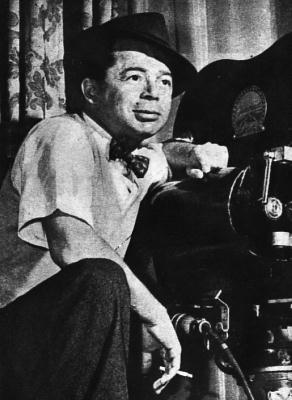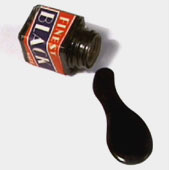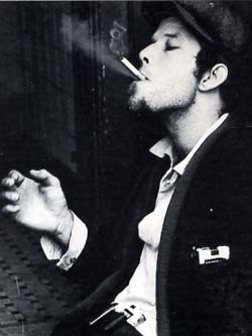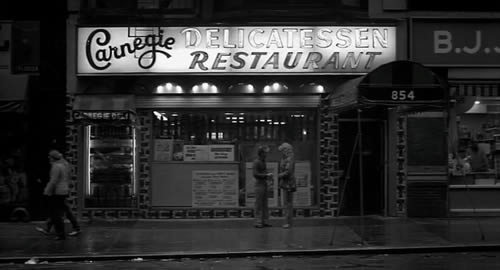 When we read about great writers’ lives all the milestones to success are clearly marked in the story: the first glimmer of talent, the years of struggle in which he or she perfected the craft, the first break, and finally success, whether it’s slow, in fits and starts or seemingly overnight. Reading all this from the outside, it’s easy to forget that what looks like a cohesive narrative may not have felt like a sure thing from the inside. It sure as hell doesn’t feel like our own careers are shaping up in any discernible way, a fact that’s discouraging. So I bring you a new feature to inspire: life lessons we can take away from famous writers’ life stories. We already have plenty of tips about the actual writing, it’s the psychological struggle where we could use some guidance. Today I start with one of my favorite filmmakers of all time, Billy Wilder.
When we read about great writers’ lives all the milestones to success are clearly marked in the story: the first glimmer of talent, the years of struggle in which he or she perfected the craft, the first break, and finally success, whether it’s slow, in fits and starts or seemingly overnight. Reading all this from the outside, it’s easy to forget that what looks like a cohesive narrative may not have felt like a sure thing from the inside. It sure as hell doesn’t feel like our own careers are shaping up in any discernible way, a fact that’s discouraging. So I bring you a new feature to inspire: life lessons we can take away from famous writers’ life stories. We already have plenty of tips about the actual writing, it’s the psychological struggle where we could use some guidance. Today I start with one of my favorite filmmakers of all time, Billy Wilder.
Author: Marly Kurtzer
Random Thoughts on the Manic Pixie Dream Girl
Lately, Zooey Deschanel has gotten a lot of flak for being girlishly cute or “adorkable”. Some have even nominated her as the reigning queen bee of all Manic Pixie Dream Girls, a term that Nathan Rabin defined as a madcap film heroine who serves to inspire the hero to shake himself out of his funk, embrace life’s mysteries and get on with his life. She is a wacky, enchanting gossamer creature and figures such as Katharine Hepburn in “Bringing Up Baby” and Ruth Gordon in “Harold and Maude” have been pegged as such. The MPDG is accused of being a passive agent of the hero’s desire, a plot device more than a character, a tendency that has earned it general scorn. (What female archetype in mainstream movies isn’t, though?) She plays at being a pretty, wacky, free spirit solely to attract male attention. Worst of all, she is accused of blunting her power by being forever child-like, even infantile.
Happy Birthday, Tom Waits!
Criticism vs. Critique
As writers, we all have to learn to hear criticism. This can be tough at first, given that we see our writing as a reflection of ourselves; hate my writing, hate me, we seem to think. However, when I took my first writing workshop many years ago, I found it hardest to figure out what to say about a fellow writer’s stories. Most of the time, all I knew was that I either liked or disliked the piece, but figuring out why was difficult. Slowly, I learned how to give back feedback, but it wasn’t until grad school that I heard an instructor give any useful advice on the subject; basically, he said that a useful critique is not a value judgment, but an honest observation about a piece.



